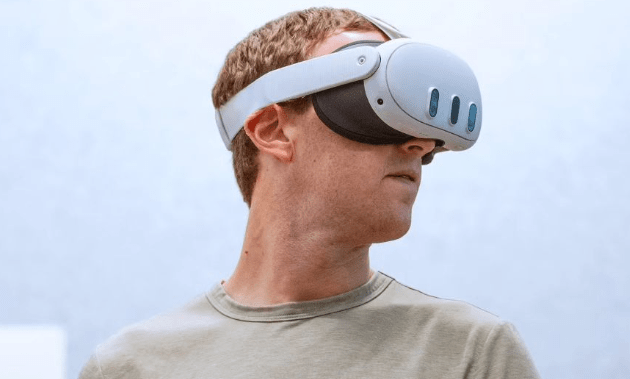Mark Zuckerberg Says He Tried Out Apple’s Vision Pro and — Surprise! — Claims Meta’s Quest 3 Is ‘the Better Product, Period’
- Oops!Something went wrong.Please try again later.

Mark Zuckerberg’s Meta has burned through billions developing virtual-reality products — without any payback foreseeable on the near-term horizon.
So he has a vested interest in touting Meta’s Quest 3 mixed-reality headset as superior to its major new rival: Apple’s Vision Pro, described as a “spatial computing” platform.
More from Variety
Zuckerberg turned tech-gadget reviewer in a video posted to his Instagram account, in which he said he finally tried out the Vision Pro. You will not be shocked to hear that he believes that the Quest 3 is not only a better value (starting at $500 vs. Vision Pro at $3,500) but simply better overall.
“All right, guys,” Zuck said in the video shared Tuesday with his 13 million Instagram followers. “So I finally tried Apple’s Vision Pro. And I have to say, before this, I expected that Quest would be the better value for most people, since it’s really good and it’s like seven times less expensive. But after using it, I don’t just think Quest is the better value. I think that Quest is the better product, period.”
“Overall, Quest is better for the vast majority of things people use mixed reality for,” like playing games, hanging out with friends and socializing, and working out, Zuckerberg continued in the video, which he said was shot “by my friend Kenny” using Quest 3 in his living room. Zuck claimed he finds Quest 3 more comfortable to wear; the Quest 3 weighs in at 515 grams compared with 600-650 grams for the Vision Pro, “which makes a really big difference on your face,” Zuckerberg commented.
He also asserted that Meta’s more open app model compared with the Vision Pro — which currently doesn’t have native apps for Netflix or YouTube — is a longer-term advantage.
“Look, I know that some fanboys get upset whenever anyone dares to question if Apple’s going to be the leader in a new category,” Zuckerberg said. “The reality is that every generation of computing has an open and a closed model, and yeah, in mobile, Apple’s closed model won.” But, he said, “In this next generation, Meta is going to be the open model, and I really want to make sure that the open model wins out again.”
Zuck said compared with the Vison Pro, Quest 3’s field of view is wider and he found the screen brighter and crisper. He acknowledged that Apple’s headset provides higher resolution. But, he said, “I was surprised by how many tradeoffs they had to make to the quality of the device, and the comfort and ergonomics, and other aspects of the display and artifacts to get to that.” The CEO also praised the Vision Pro eye-tracking features as “really nice” and said Meta will bring eye-tracking sensors it had removed from the Quest in future iterations.
Apple’s Vision Pro features ultra-high-resolution displays that deliver more pixels than a 4K TV for each eye. According to Apple, on Vision Pro, you can watch movies and TV shows from Apple TV+, Disney+, Max and other services on a screen that feels 100 feet wide. Vision Pro also introduces Apple Immersive Video, a new entertainment format pioneered by Apple that “puts you inside the action with 180-degree, three-dimensional 8K recordings captured with Spatial Audio,” according to the company.
Zuckerberg was trash-talking Apple’s headset months before Vision Pro was released. At a Meta employee meeting in June 2023, after the Vision Pro was announced at Apple’s Worldwide Developers Conference, Zuckerberg downplayed the threat of Apple’s entry into the space, noting the Vision Pro’s high price tag and telling staffers, “There’s no kind of magical solutions that they have to any of the constraints on laws and physics that our teams haven’t already explored and thought of.”
In reporting fourth-quarter 2023 results, Meta reiterated that in 2024, it expects operating losses in the Reality Labs division — which houses the Quest AR/VR headset and metaverse initiatives — to “increase meaningfully” year-over-year “due to our ongoing product development efforts in augmented reality/virtual reality and our investments to further scale our ecosystem.” For full-year 2023, Reality Labs revenue was $1.9 billion (down 12%) and its operating loss widened to $16.1 billion (versus $13.7 billion in 2022).
Best of Variety
Sign up for Variety’s Newsletter. For the latest news, follow us on Facebook, Twitter, and Instagram.
